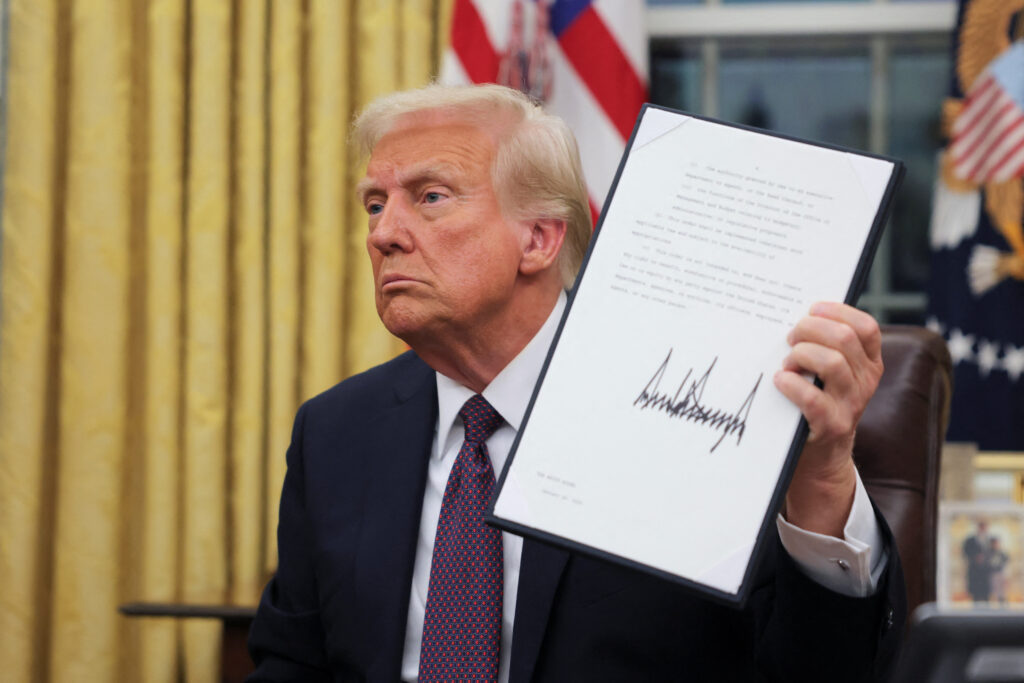Trump’s Energy Policy Shifts U.S. Toward Global LNG Leadership

U.S. President Donald Trump holds a document on the day he issues executive orders and pardons for January 6 defendants in the Oval Office at the White House on Inauguration Day in Washington, U.S., January 20, 2025. REUTERS/Carlos Barria
Tim Stewart, president of the Oil and Gas Association, said that President Donald Trump’s early executive actions have rapidly shifted the United States from years of restrictive energy policy toward a renewed push for global dominance in liquefied natural gas exports. Stewart outlined how Trump’s early energy directives have reset the national approach to oil, gas, and liquefied natural gas (LNG).
Stewart said Trump’s actions stand in sharp contrast to policies under former President Joe Biden, which he described as deeply damaging to production and investment. He believed the difference between the two administrations forms the basis for understanding how Trump’s new LNG-focused order helps the United States regain leadership abroad. Stewart argued that Biden oversaw “over 250 individual actions that were designed to end production or use of fossil energy, about one or two per week.” According to Stewart, this barrage of restrictions created constant uncertainty for producers and weakened the country’s position in global markets. He added that Trump’s first weeks in office reversed that trajectory.
Stewart noted that “of the 212 executive orders, 22 of them have directly impacted energy, including LNG.” He said these changes have “completely reset, sort of, the global energy policy and the global energy markets.” Stewart argued that the U.S. LNG sector captured this shift. “We’ve gone from 20 years ago talking about the need to invest billions of dollars to import LNG, to now we are going to capture one quarter of the global LNG export market this year,” Stewart said. He called the turnaround a “phenomenal game changer” that reflects what happens when producers no longer worry that federal policy will shrink their industry.
Stewart said the administration’s broader goal is restoring the position the United States held during Trump’s first term, when the country approached what officials then described as energy dominance. He emphasized that the new actions are not a radical break but a return to stability. “Yeah, restoring is the keyword there,” he said. He added that Trump is “literally just restoring balance,” pointing to Biden’s early restrictions as the source of the decline in production and permitting. For example, Stewart cited a lease sale in New Mexico that took place last week, despite the government shutdown. He said it generated $312 million for 2,900 acres. By comparison, he said Biden’s largest New Mexico lease sale produced $600,000 during his administration. Stewart said the new numbers show the industry once again trusts federal management of energy assets.
He said confidence is essential because federal land holds significant reserves. “The federal asset is 25% of all of our oil and gas in the United States,” he said. Stewart argued that when companies believe Washington supports development, “we’re willing to put money back into the federal asset.” He concluded by saying that this renewed trust reflects Trump’s broader point that stable rules draw investment and encourage production, strengthening U.S. energy output and its standing abroad.




